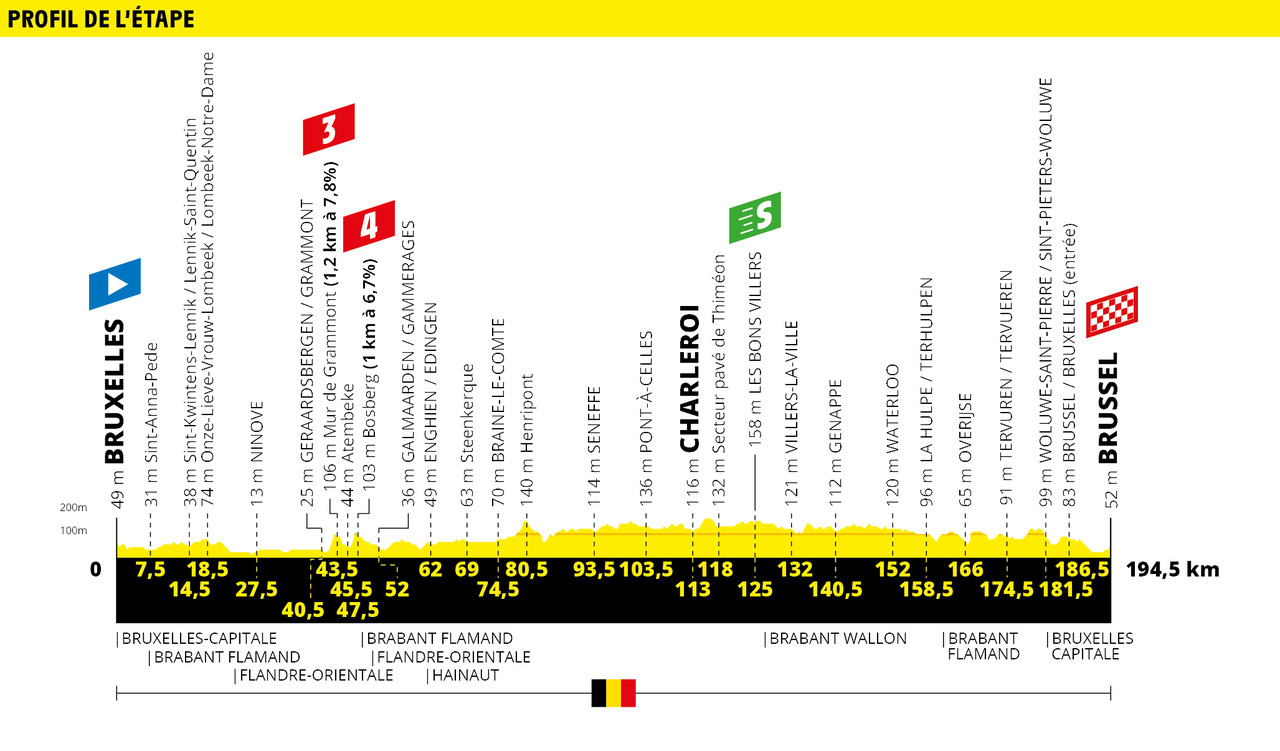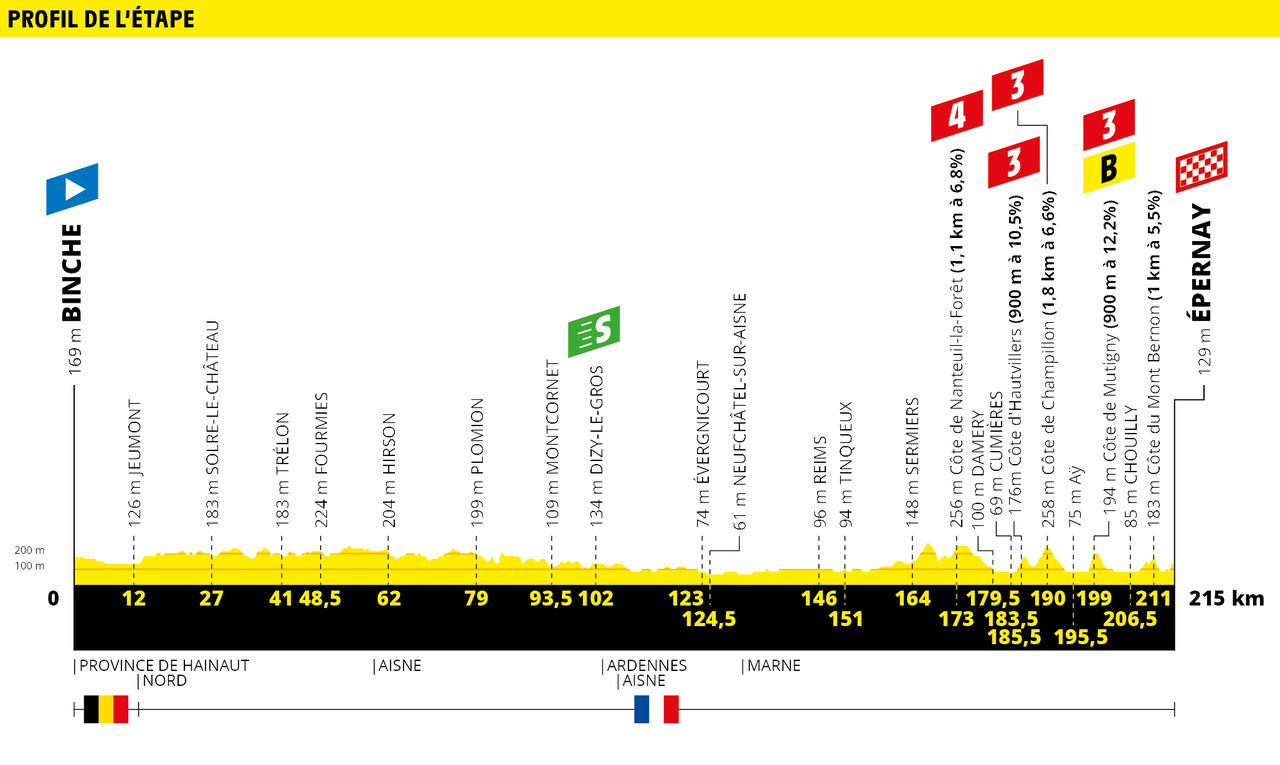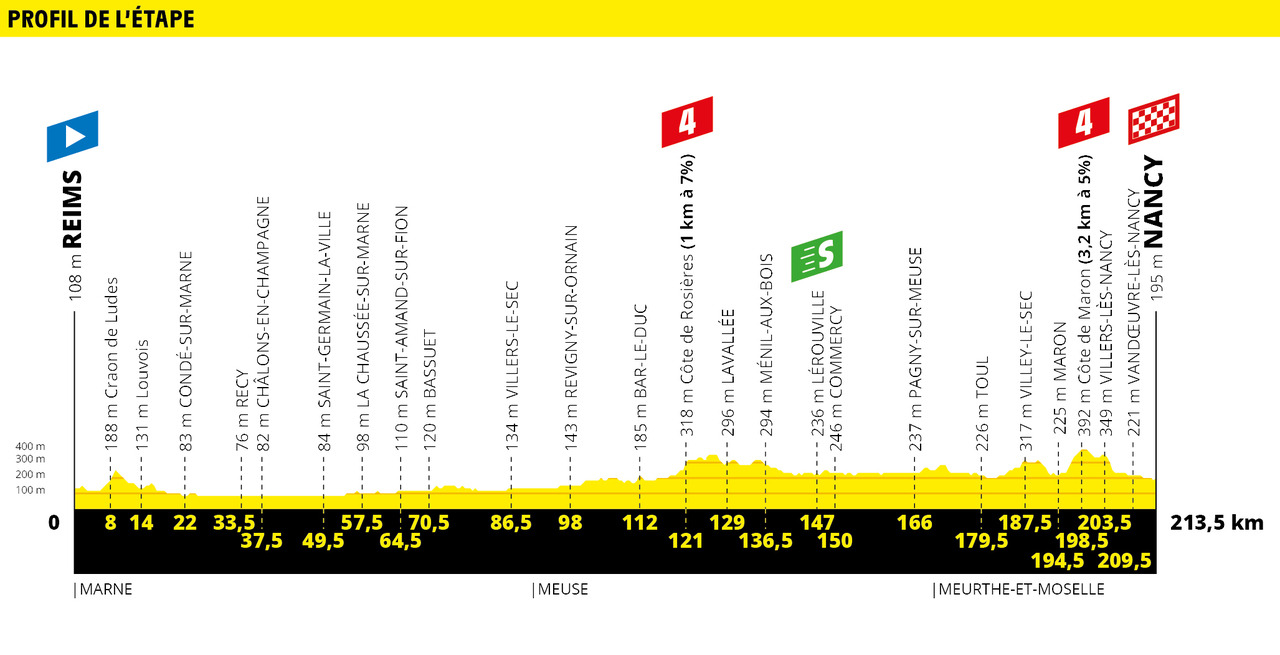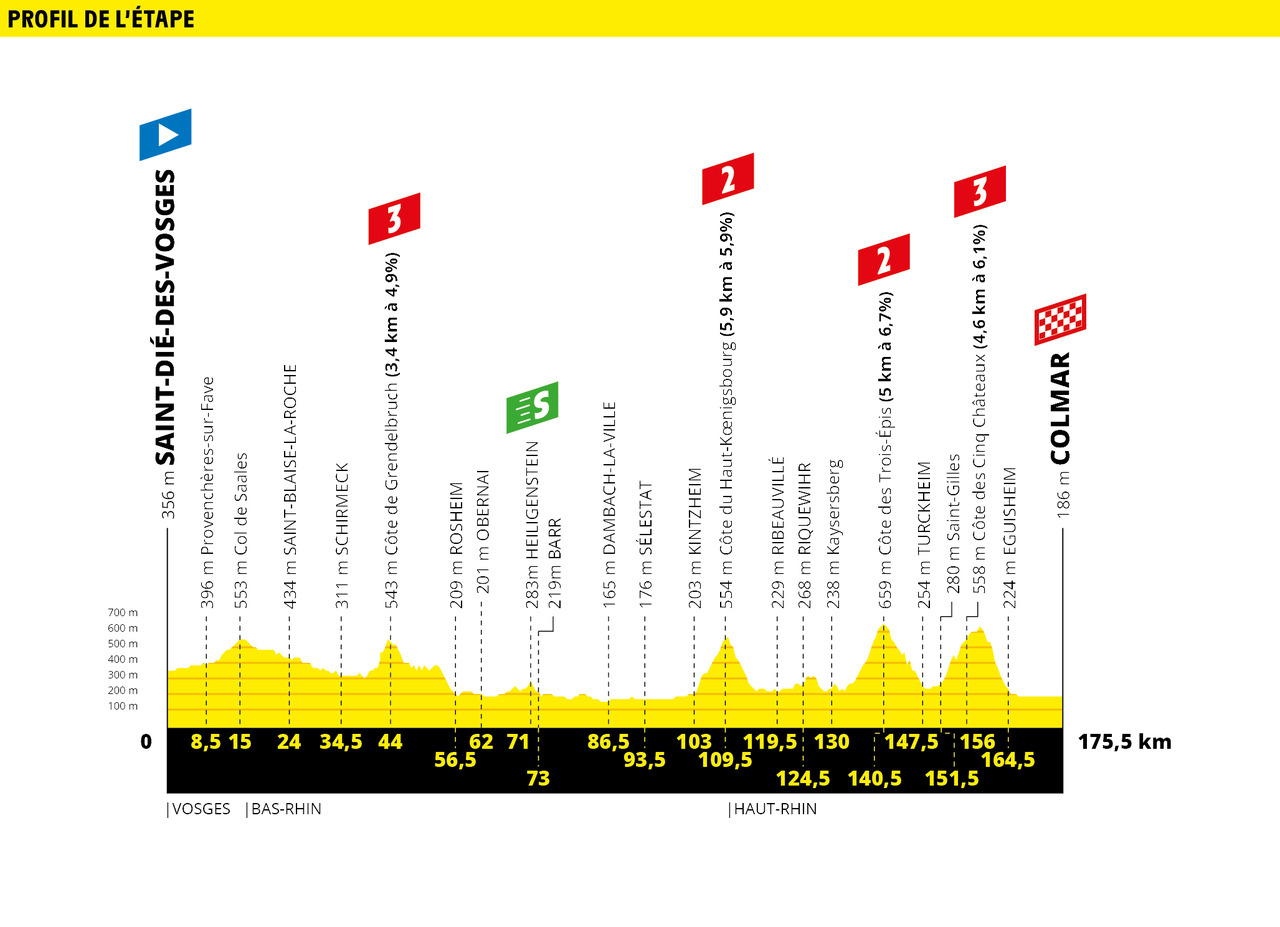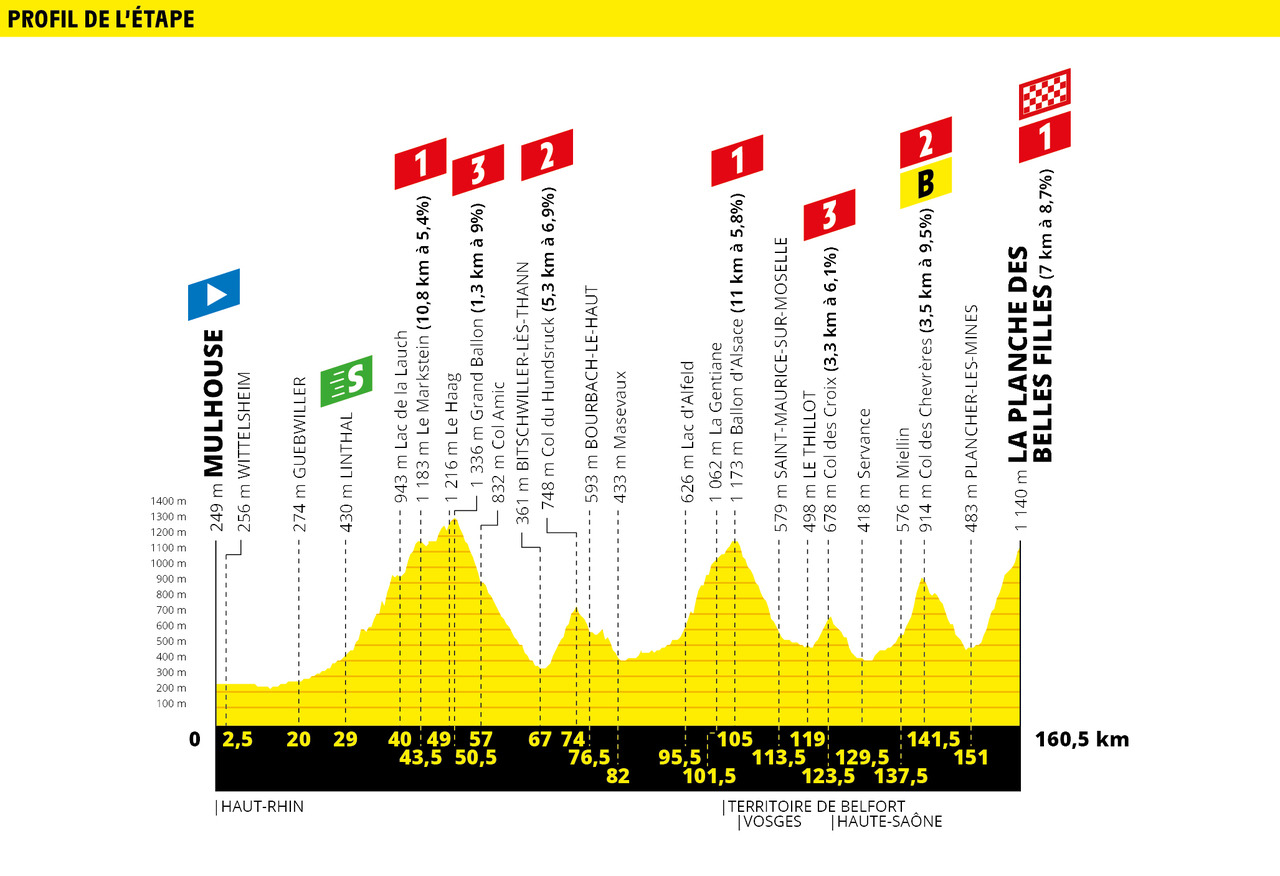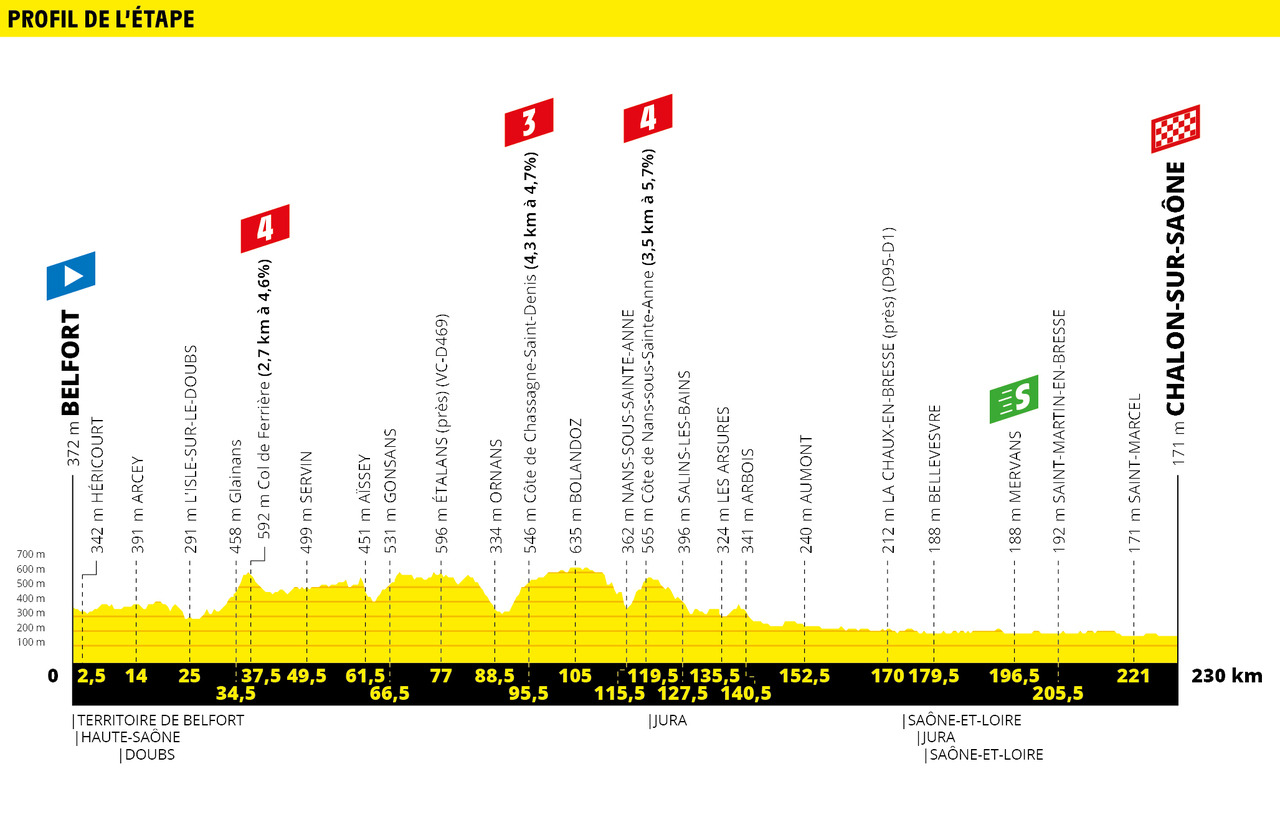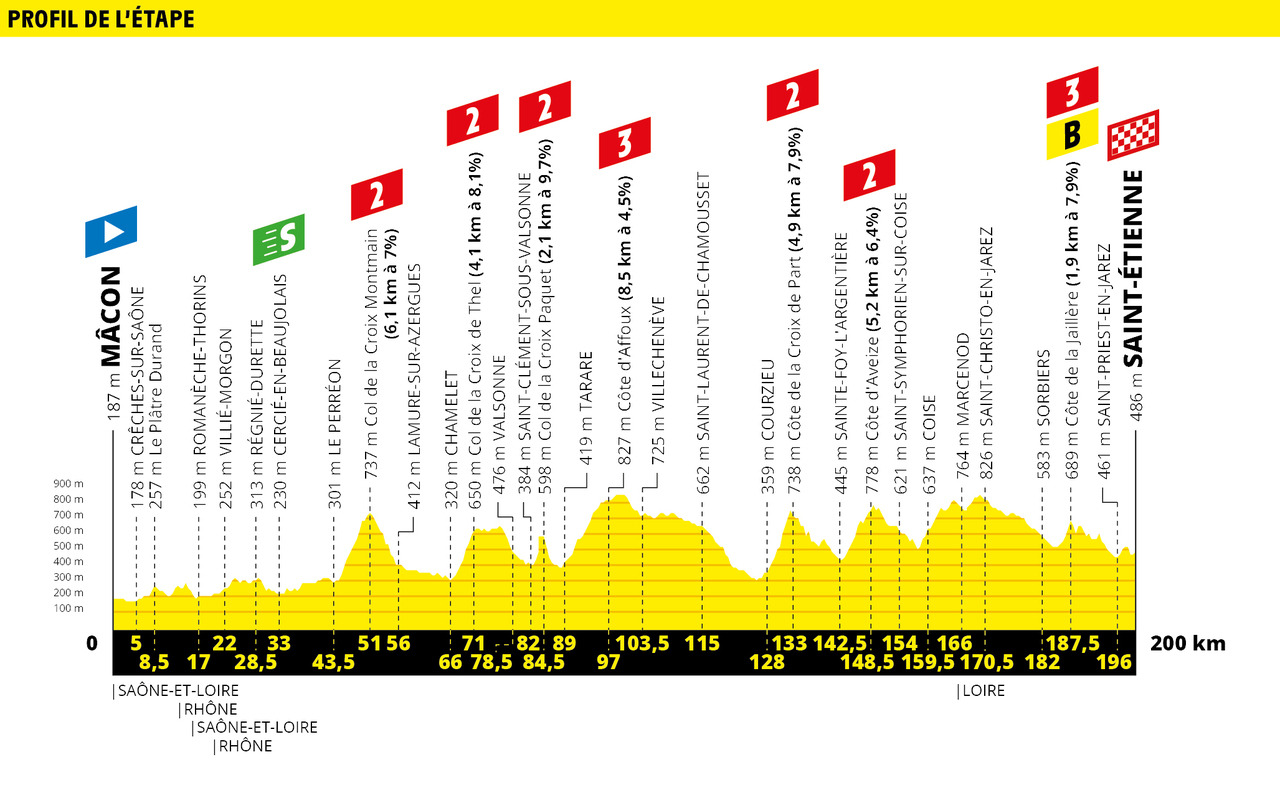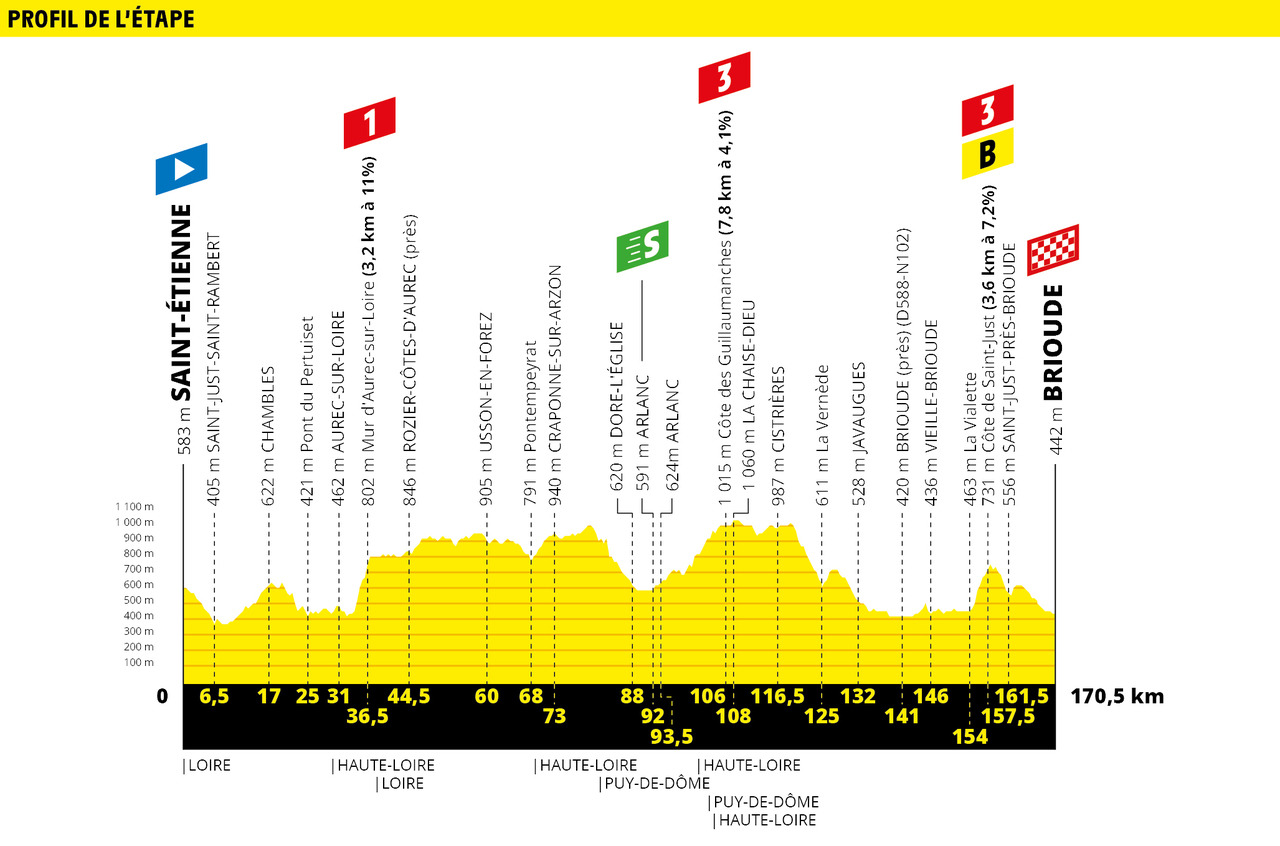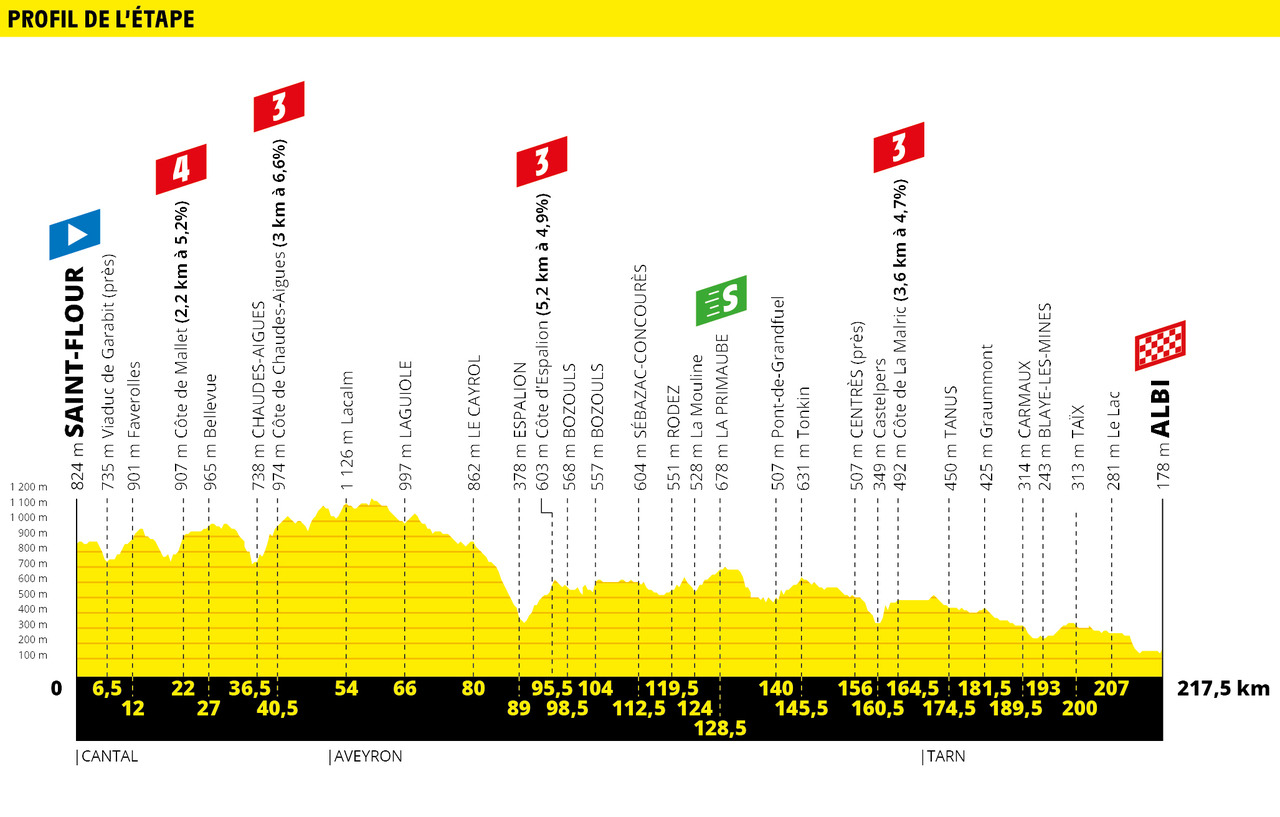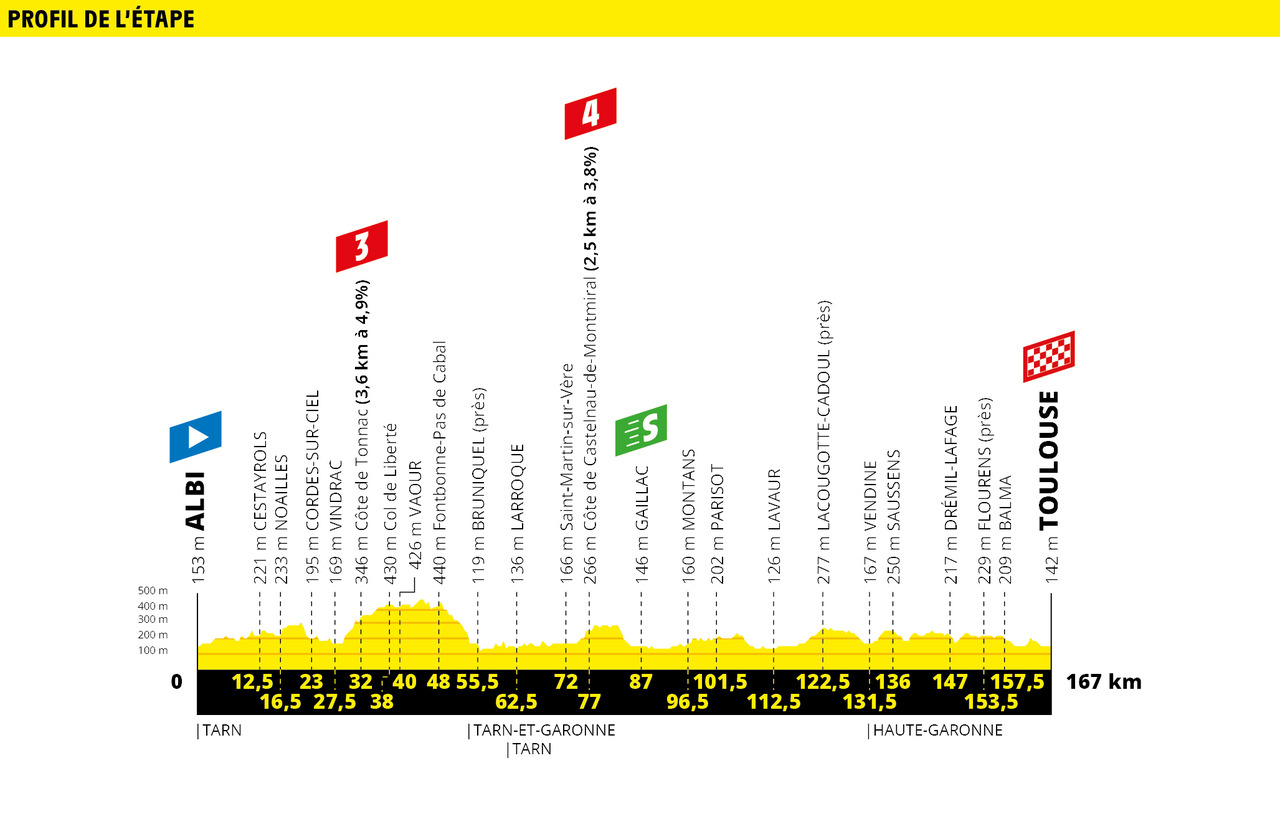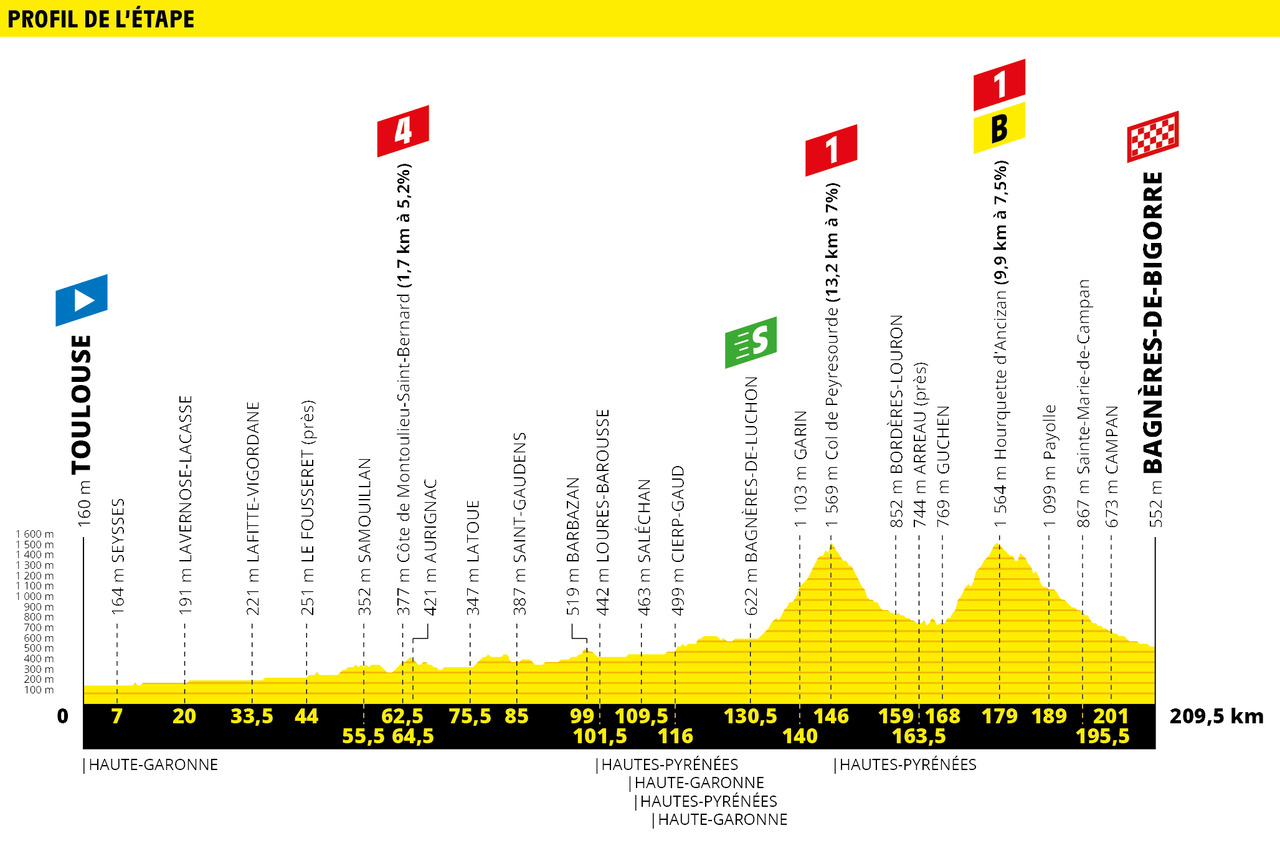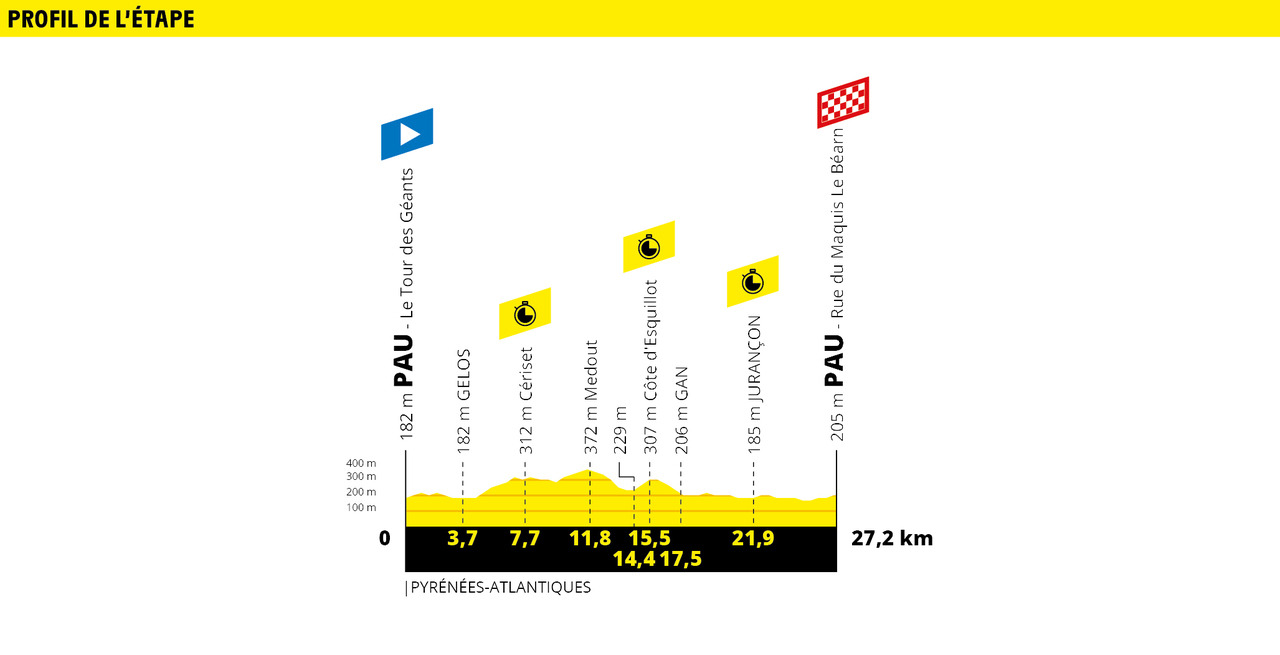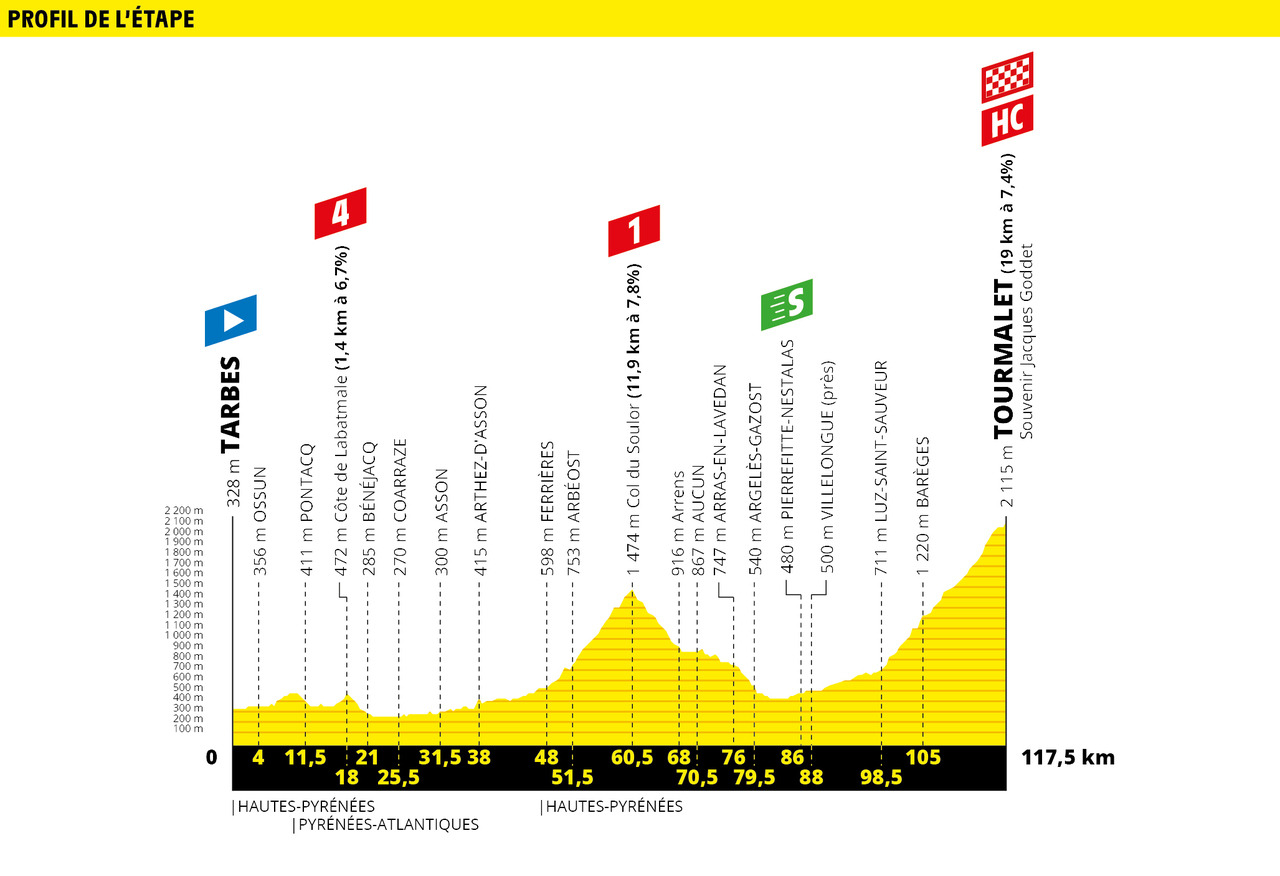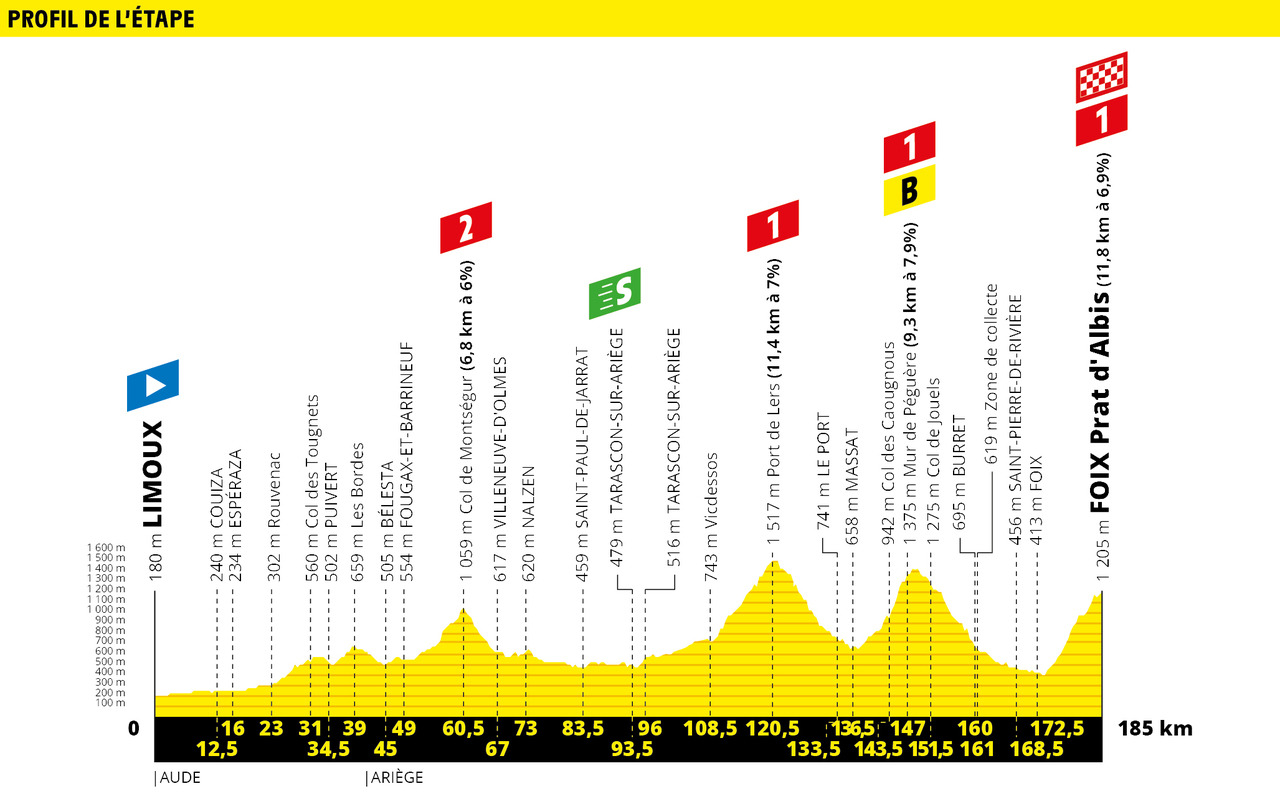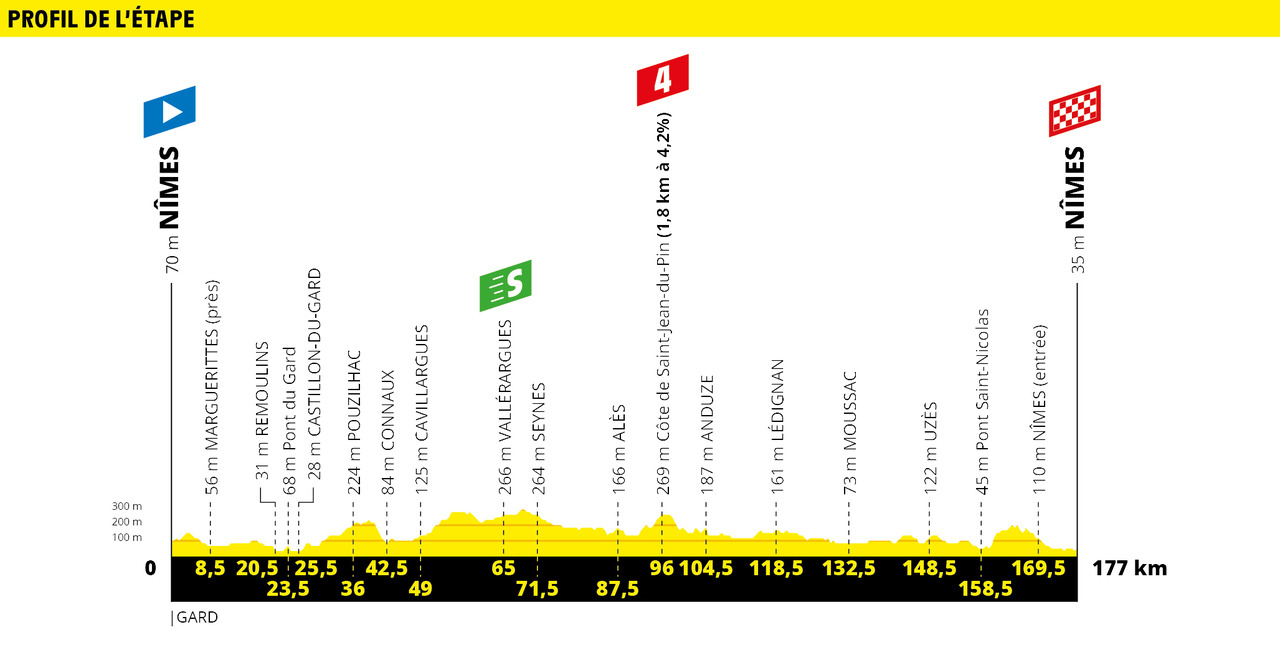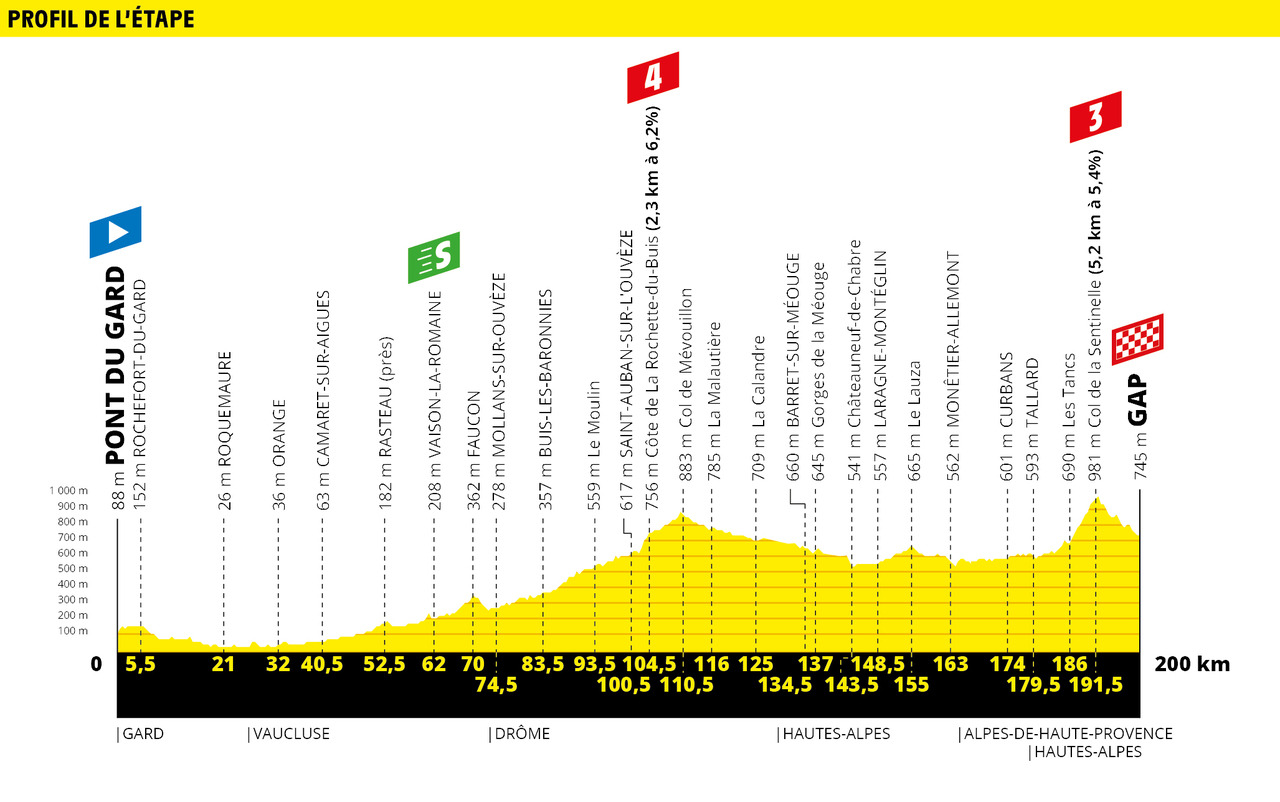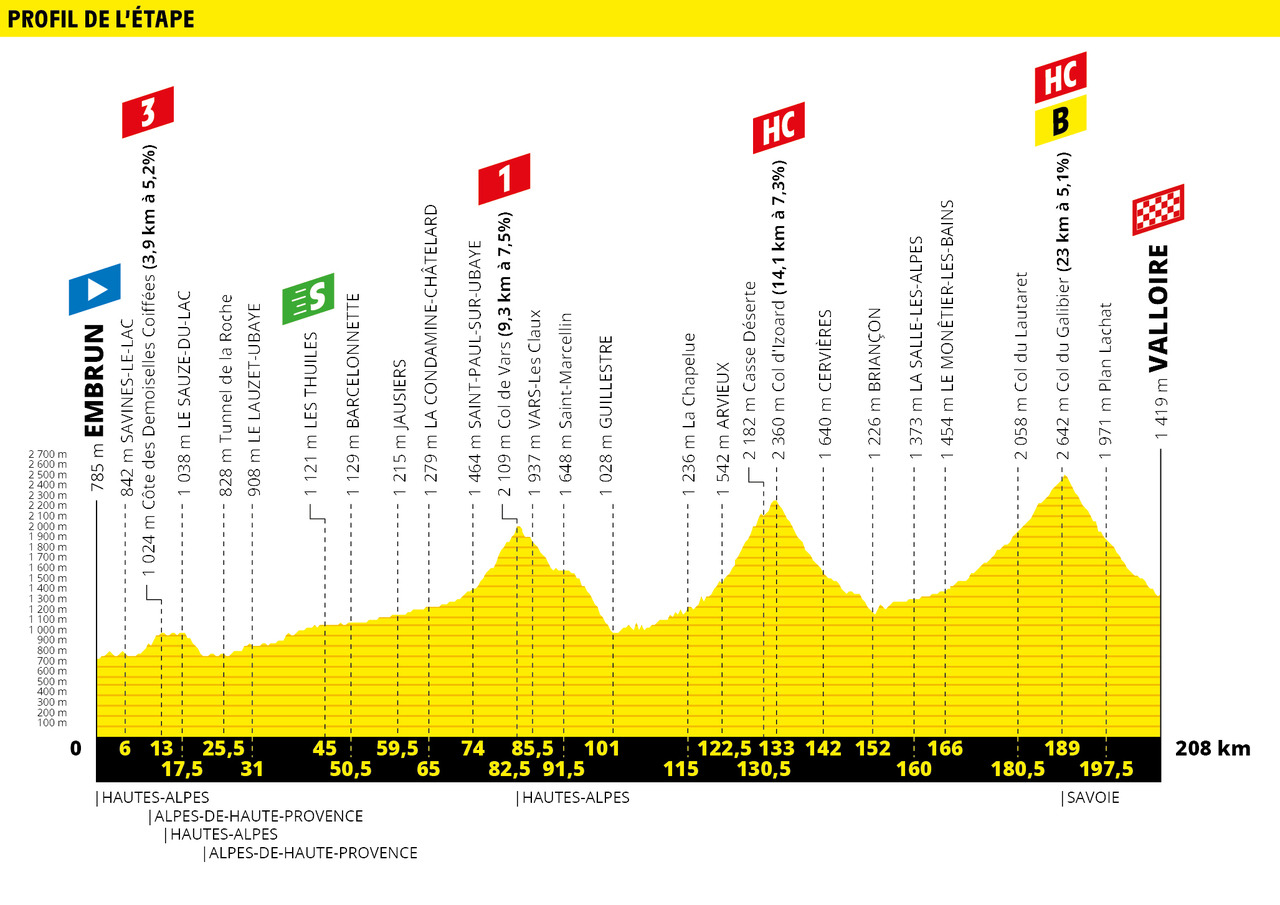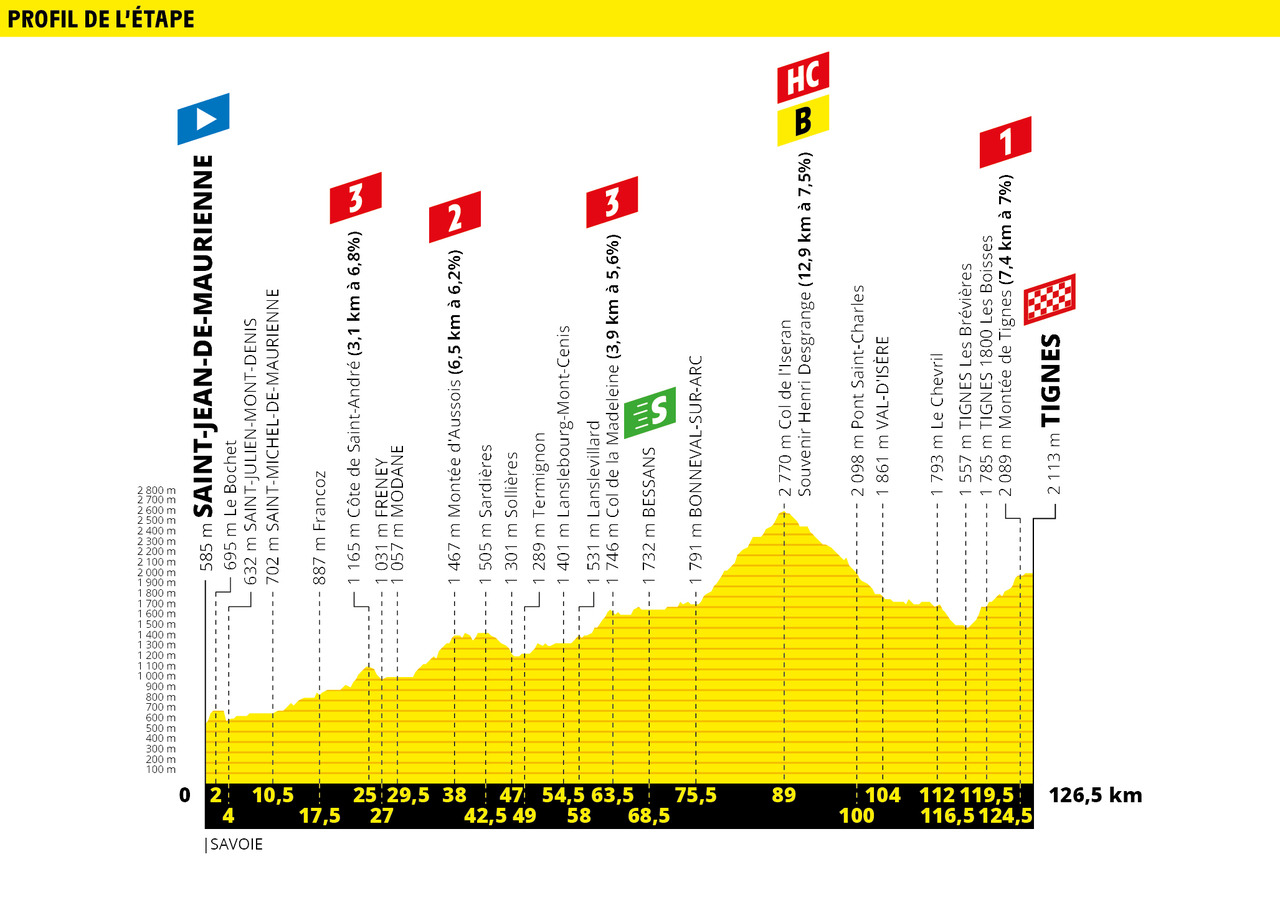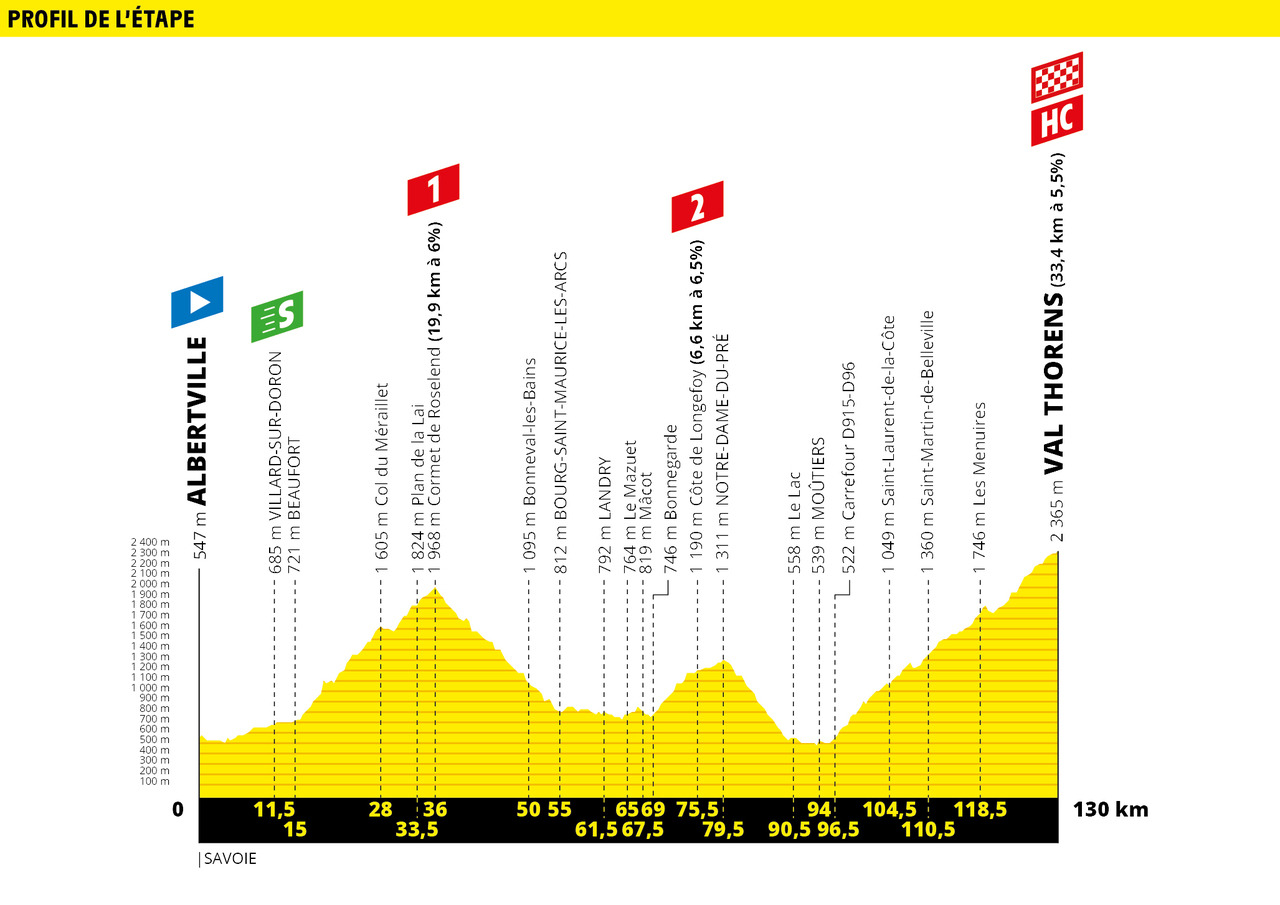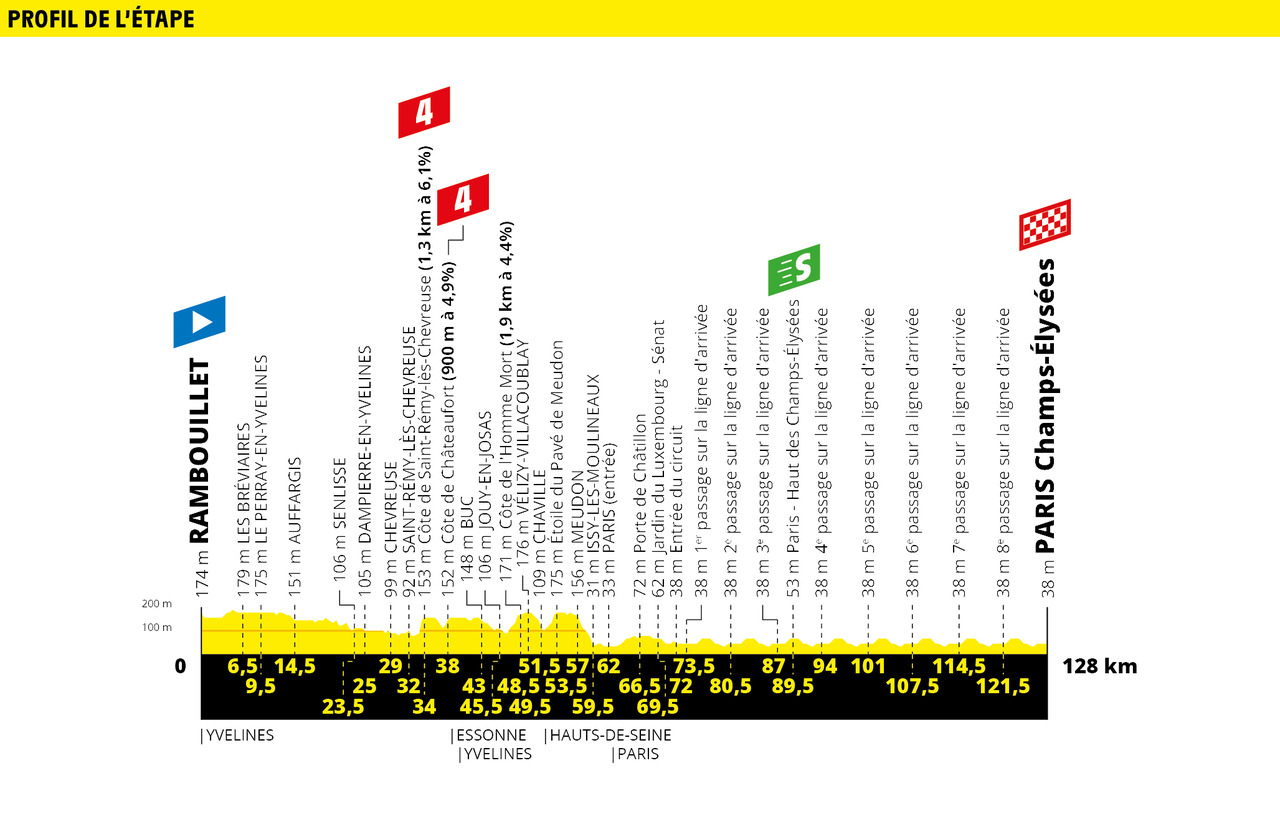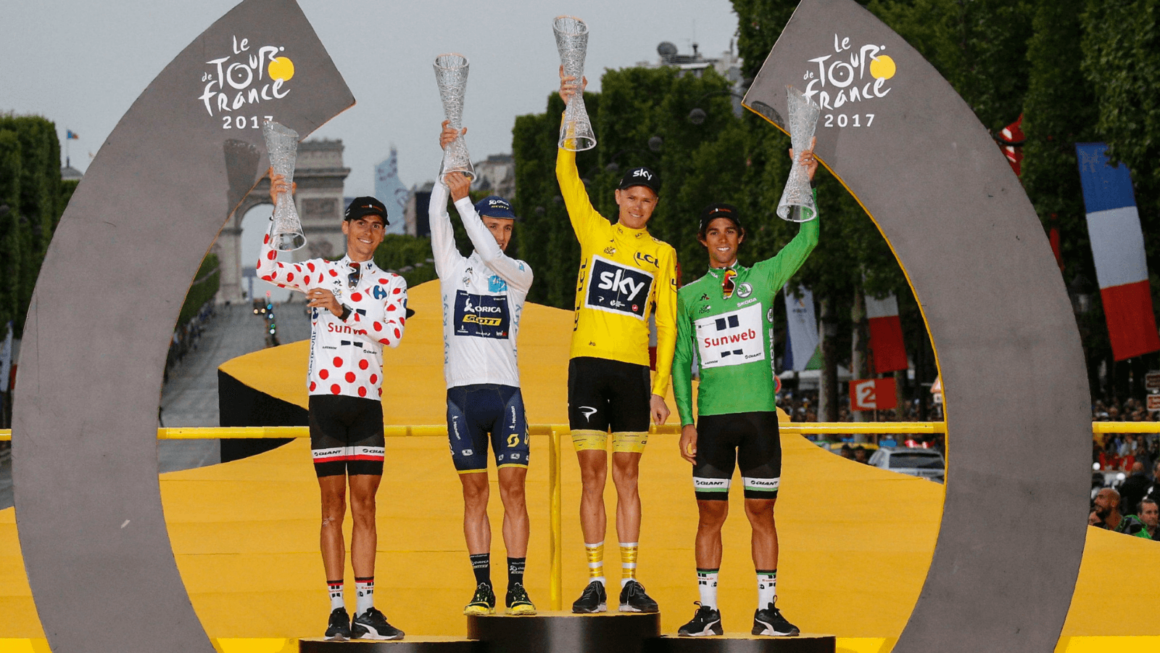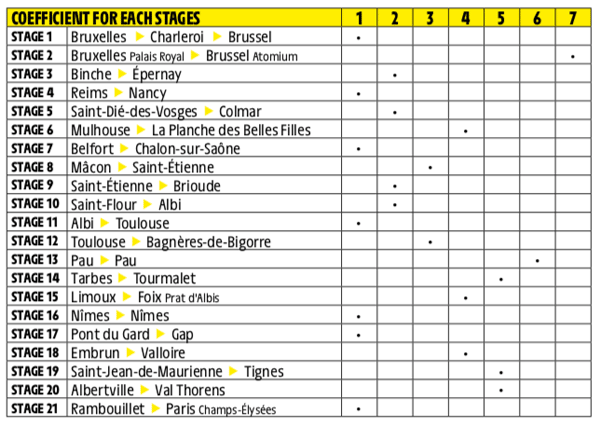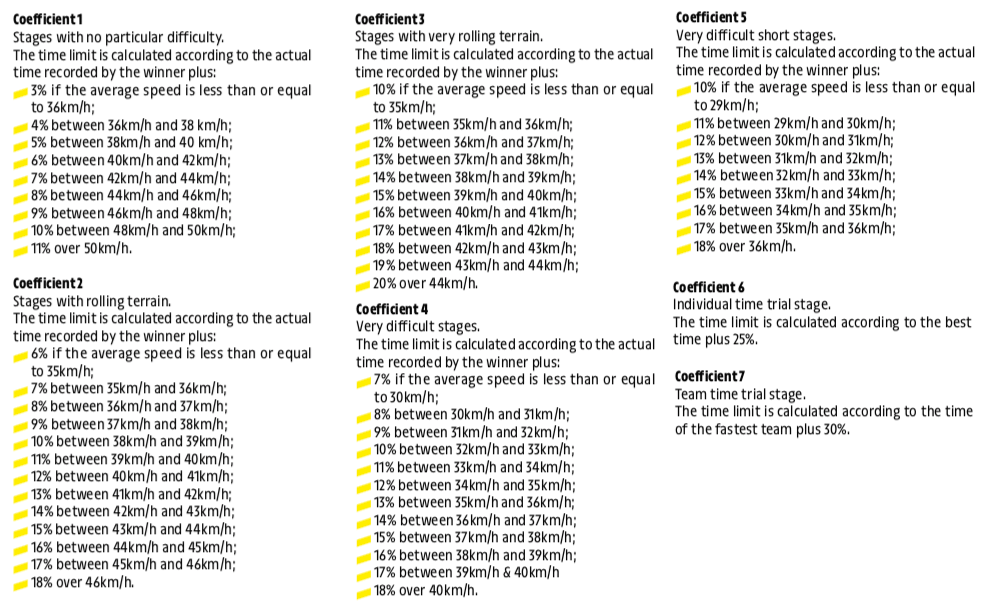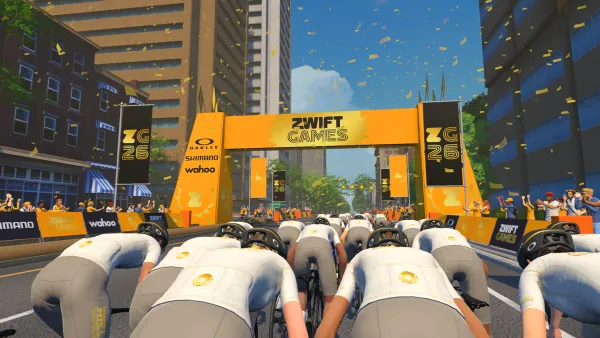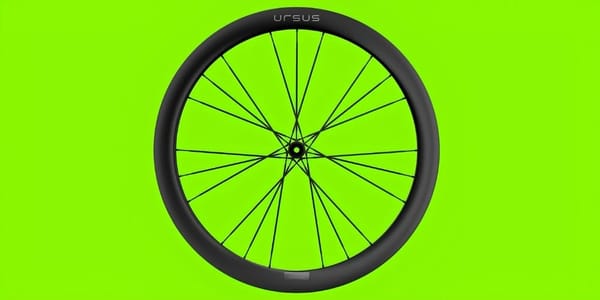Tour de France 2019 Preview & Guide
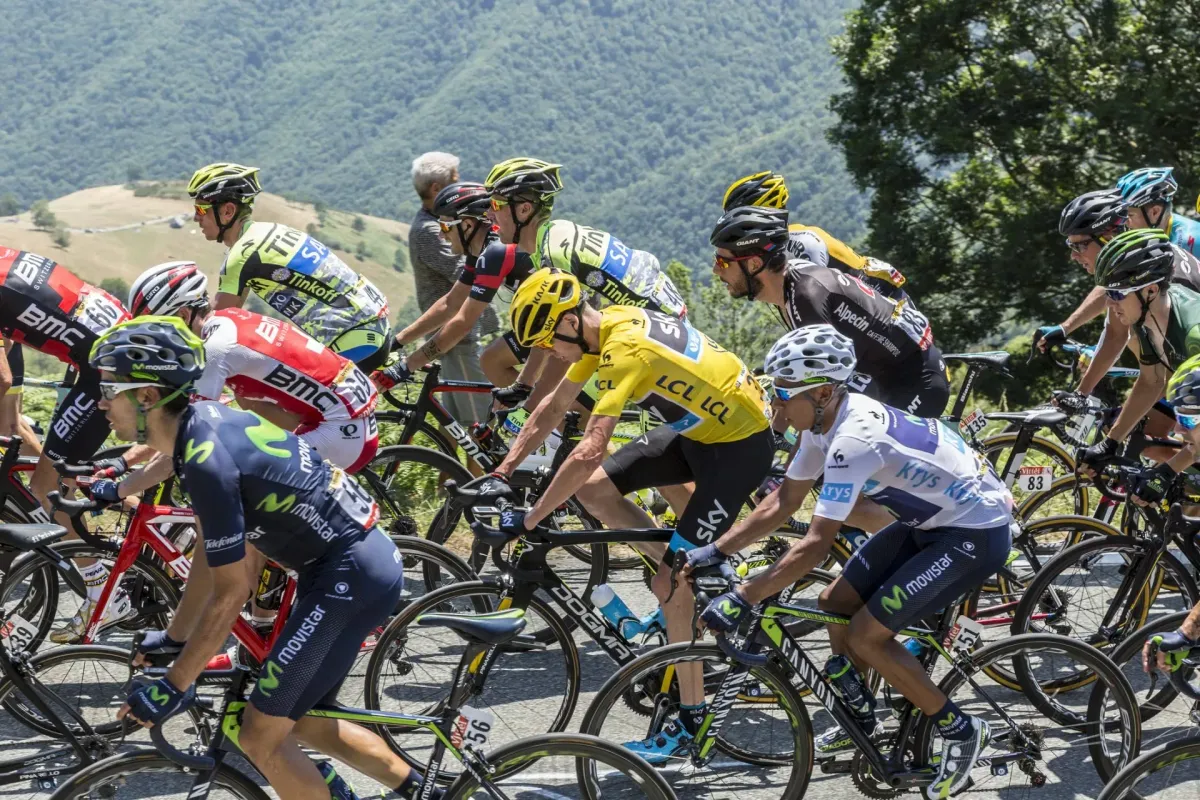
Despite a new face taking the win last year (Geraint Thomas), last year’s Tour de France has faced some fair criticism for being boring. Despite Thomas’ win, it marked the sixth win in seven tries for Team Sky (now Team Ineos). And the first week of racing in 2018 was a slog.
In an effort to shake things up, this year’s Tour boasts lot of elevation change and some interesting stage profiles. All told it’s one of the least traditional routes in some time. Add to the route changes some very interesting team shake ups, and things are looking interesting. Five time TdF winner Chris Froome is out following a horrific crash, Tom Dumoulin last year’s second place finisher is also out with an ongoing injury. The race feels open, which will cause excitement.
2019 Tour de France Stages
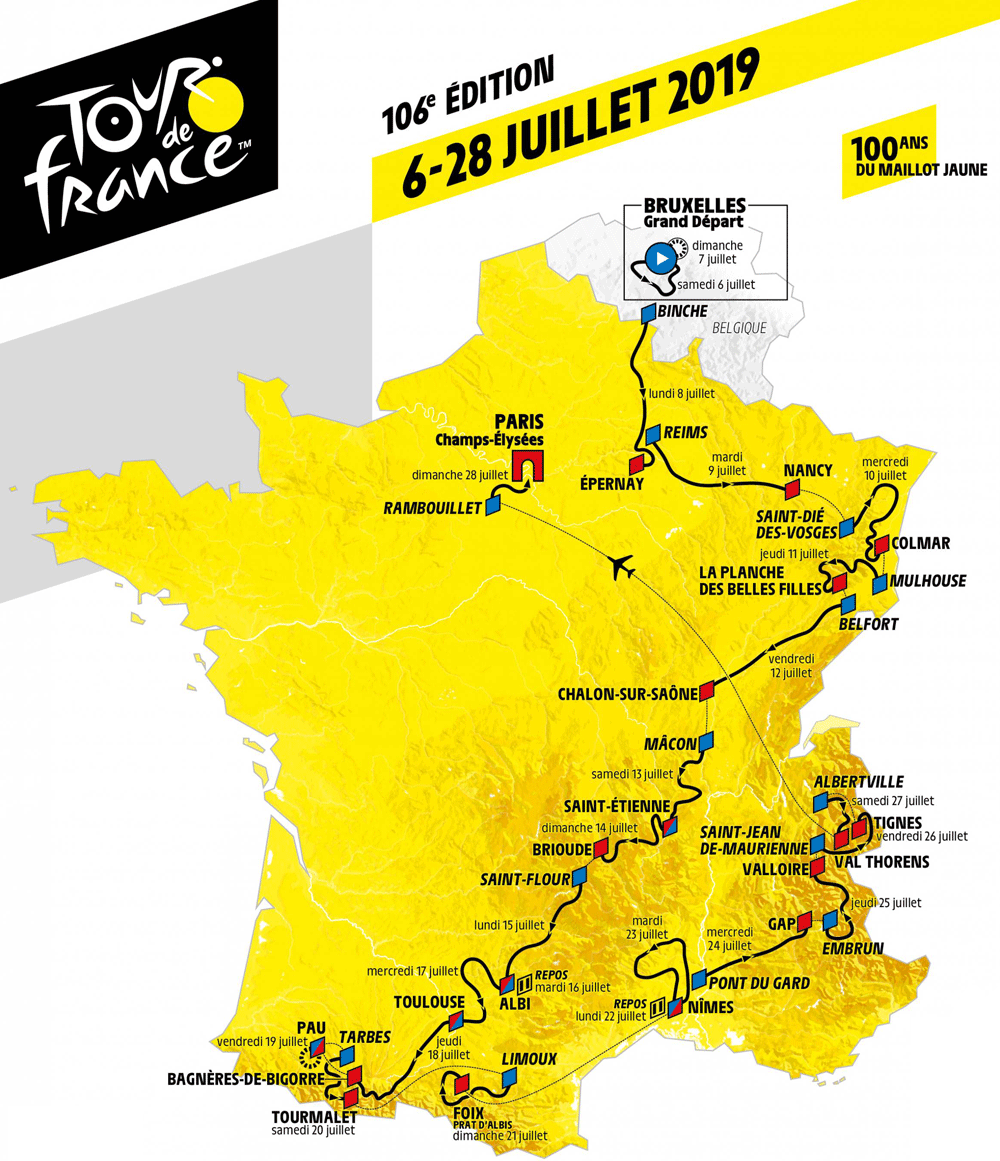
To summarize the overall route, it’s vertical. Additionally, the official themes for the 2019 edition are the yellow jersey and Eddy Merckx. There’s a lot of climbing across the three weeks, including the first. It won’t be an easy opening week for the sprinters, included is a hard summit finish at the Planche des Belles Filles and plenty of other climbs along the way. There are never more than two consecutive sprint stages in the race. Riders won’t be able to rely on their time trialing skills to make up time either, there’s only one time trial and it’s mid-race. Crack in the mountains and the race might be over.
SATURDAY, JULY 6 – BRUSSELS (BELGIUM) TO BRUSSELS (BELGIUM) – 194.5K
This year’s Tour starts in Brussels, Belgium, to honor the 50th anniversary of Eddy Merckx’s first Tour win. Riders will spar over the first two categorized climbs: the Muur de Geraardsbergen and the Bosberg, both are cobbled. A nice throwback to the Flemish spring Classics and a very Merckx’ian start. The race will most likely come back together toward the finish, with a slightly uphill field sprint. Peter Sagan or Greg Van Avermaet could easily exist Stage 1 in the yellow jersey.
SUNDAY, JULY 7 – BRUSSELS-ROYAL PALACE (BELGIUM) TO BRUSSELS-ATOMIUM (BELGIUM) – 27.6K (TTT)
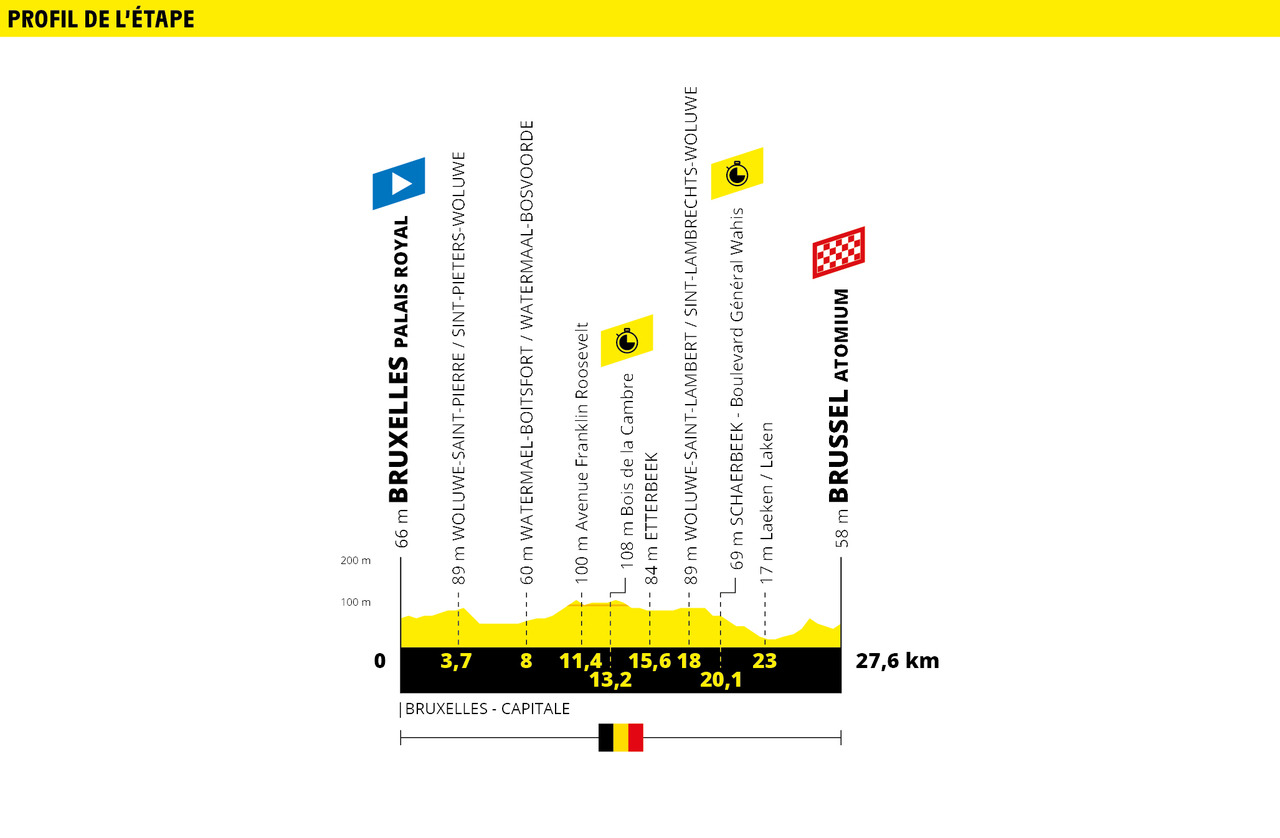
An undulating 28K team time trial through Brussels. Watch for Ineos to have a strong showing and establish itself as the team to beat.
MONDAY, JULY 8 – BINCHE (BELGIUM) TO ÉPERNAY – 215K
With a jaunt south from the Belgian town of Binche, Stage 3 brings the Tour de France into France. The day stage ends tough, with three Category 3 climbs in the final 30K and an uphill finish in Épernay. This is the ideal stage for a rider like Julian Alaphilippe to breakaway for a solo victory.
TUESDAY, JULY 9 – REIMS TO NANCY – 213.5K
Be sure to tune in for the start in Reims, the town’s famous cathedral is beautiful. Stage 4 is relatively flat, but packs a Category 4 climb into the last 15K which will likely upset the field sprinters.
WEDNESDAY, JULY 10 – SAINT-DIÉ-DES-VOSGES TO COLMAR – 169K
Raced through the heart of the Vosges, this stage features a succession of climbs in the final half including the Trois-Epis and the Cinq Chateaux. All told there are four categorized climbs – including the first Category 2 climbs of the Tour. This stage should go to a breakaway filled with climbers sparring over the polka-dot jersey like Thomas de Gendt or a group of Classics riders like Alaphilippe, Sagan, Matthews, and Van Avermaet.
THURSDAY, JULY 11 – MULHOUSE TO LA PLANCHE DES BELLES FILLES – 157K
The first true mountain stage, the race returns to La Planche des Belles Filles, a summit finish that could shakeup the General Classification early on. Plus, an extra kilometer on the final climb makes it even steeper than it already was. Ouch.
FRIDAY, JULY 12 – BELFORT TO CHALON-SUR-SAÔNE – 230K
After two hard days of climbing, riders get to take on the longest stage of the Tour. The sprinters will have their chance at a field sprint in Chalon-sur-Saône.
SATURDAY, JULY 13 – MÂCON TO SAINT-ÉTIENNE – 200K
The holiday weekend led Tour organizers to put something special together, a 200km stage on rugged roads across the massif central. Stage 8 will be a challenge thanks to a technical profile featuring seven categorized climbs and a tough finish in Saint-Étienne. Watch for attacks, more attacks and whoever is in the GC struggle to keep them all in check.
SUNDAY, JULY 14 – SAINT-ÉTIENNE TO BRIOUDE – 170.5K
Bastille Day, so expect French riders to go on the attack in the hopes of grabbing a stage victory in Brioude. The Category 3 Côte de Saint-Just about 13K from the finish might just be the perfect place to launch a winning attack.
MONDAY, JULY 15 – SAINT-FLOUR TO ALBI – 217.5K
This will be a very scenic stage and will most likely end in a bunch sprint. That said, it’s another long, challenging stage with an undulating profile, a breakaway could get away. The downhill run-in to Albi will likely determine the stage.
WEDNESDAY, JULY 17 – ALBI TO TOULOUSE – 167K
Following the rest day, this is the stage for photos of the peloton passing fields of sunflowers. The ride across the Pays de Cocagne should give field sprinters a chance to score a victory.
THURSDAY, JULY 18 – TOULOUSE TO BAGNÈRES-DE-BIGORRE – 202K
Stage 12 is a long procession south to the Pyrenees. With only two Category 1 climbs in the stage’s second half and a long downhill ride from the final summit to the finish in Bagnères-de-Bigorre, this is a fairly gentle introduction to the Pyrenees. Stage 13 being the individual time trial, GC contenders will likely take this stage easy so it might be a chance for a breakaway to get away and stay away.
FRIDAY JULY 19 – PAU TO PAU – 27K (ITT)
It’s the only individual time trial of the race and it’s sandwiched between mountain stages. The 27.2km course features several short climbs.
SATURDAY, JULY 20 – TARBES TO COL DU TOURMALET – 117K
The Col du Tourmalet is one of the most famous climbs in the Pyrenees, but Stage 14 will be only the third time it’s been used as a summit finish in the Tour. It comes at the end of the 2019 editions shortest stage. The battle to the top will be something to watch.
SUNDAY, JULY 21 – LIMOUX TO FOIX – 185K
Stage 15 is playing second fiddle to the excitement for Stage 14, but it just might prove to be more exciting. The stage starts with a scenic, calm ride through the countryside the final half, though, is packed with hard climbs including the Mur de Péguère before a new summit finish at Prat d’Albis which sits above Foix. The climb’s double-digit gradients will test riders and will surely put a GC rider or two in trouble.
TUESDAY, JULY 23 – NÃŽMES TO NÃŽMES – 177K
Coming out of the second rest day, a reward for the sprinters with a loop around the Roman city of Nîmes. The race is also coming out of a lot of tough climbing stages, if the sprinter field has been whittled down sufficiently a breakaway might give it a go and have it stick.
WEDNESDAY, JULY 24 – PONT DU GARD TO GAP – 200K
Stage 17 takes the race to the Alps, starting with the Col de la Sentinelle which is 5km at 5% with a gnarly 10% section. The stage ends in Gap after a short Category 3 climb and a quick descent into the town below.
THURSDAY, JULY 25 – EMBRUN TO VALLOIRE – 208K
Stage 18 is a marathon of mountain climbing with three climbs over 2,000 meters – including the Col d’Izoard and the Col du Galibier. At 208K, it’s also the longest high mountain stage this year. Riders will be in the saddle for more than six hours. This stage could very well determine the 2019 Tour de France winner.
FRIDAY, JULY 26 – SAINT-JEAN-DE-MAURIENNE TO TIGNES – 126.5K
Stage 19 features the highest climb of the year, the 2,770-meter Col de l’Iseran. It’s a short stage, but with three smaller climbs early on before the the Iseran and then summit finish in Tignes it won’t be easy.
SATURDAY, JULY 27 – ALBERTVILLE TO VAL THORENS – 130K
The third and final day in the Alps has the longest climb of the Tour: the 33K ascent to Val Thorens. There’s a lot packed into this relatively short stage as riders will tackle 4,500m of vertical gain in just 130km. It’s the last chance for GC shakeups.
SUNDAY, JULY 28 – RAMBOUILLET TO PARIS (CHAMPS-ÉLYSÉES) – 128K
A 60km parade to the evening finish on the Champs Elysées and the final chance for the field sprinters.
2019 Tour de France Jerseys
Yellow Jersey
Worn by the leader of the general classification, the rider with the lowest time over the entire course. The maillot jaune is awarded to the overall race leader after each stage and the rider who takes it to Paris is crowned Tour de France champion.
The classification is based on the time taken to complete the whole course, but there are bonus seconds available on course. Bonuses of 10, 6, 4 seconds are awarded on the finish line to the top three riders on each stage, excluding time trials. This year will see further bonus seconds at the top of certain climbs. There are bonuses of 8, 5, 2 seconds for the first three riders to these points, on stages: 3, 6, 8, 9, 12, 15, 18, 19.
Green Jersey
Worn by the leader of the points classification. Points are awarded at stage finishes and intermediate sprints.
Points are awarded to the first 15 riders at stage finishes or intermediate sprints:
Stages 1, 4, 7, 11, 16, 17, 21 (flat): 50-30-20-18-16-14-12-10-8-7-6-5-4-3-2
Stages 3, 5, 8, 9, 10, 12 (rolling/medium mountain): 30-25-22-19-17-15-13-11-9-7-6-5-4-3-2
Stages 6, 13, 14, 15, 18, 19, 20: (high mountain and ITT): 20-17-15-13-11-10-9-8-7-6-5-4-3-2-1
Intermediate sprints (one per road stage): 20-17-15-13-11-10-9-8-7-6-5-4-3-2-1
Polka-dot Jersey
Worn by the leader of the mountains classification, or the ‘king of the mountains’. Mountains points are available at the top of every classified climb, ranging from the hardest – ‘hors catégorie’ to the easiest – category 4.
Hors catégorie: 20-15-12-10-8-6-4-2
Category 1: 10-8-6-4-2-1
Category 2: 5-3-2-1
Category 3: 2-1
Category 4: 1
White Jersey
Worn by the best young rider. A ‘young rider’ is anyone who was born after January 1, 1994, so anyone under 25. The jersey goes to the best young rider on general classification.
Red dossard
Not a jersey but a red number badge worn by the ‘most combative’ rider from the previous day – usually the rider most active in the breakaway. The super combatif prize is awarded to the most aggressive rider of the whole race.
Yellow dossard
Worn by members of the team leading the team, calculated by adding together the times of each team’s three best riders on every stage.
Time Cuts
All riders must finish within the time limit – a certain percentage (ranging from 3 to 20 percent depending on the stage and average speed) of the stage winner’s time each day in order to continue in the Tour. Sprinters will get picked off in the high mountains.
The time cut depends on the stage, look up the stage and its coefficient on the table above and then match it to the information below:
2019 Tour de France Stages You Can’t Miss
It’s the Tour de France, honestly you should watch it all. The scenery is incredible, all the (healthy) big names are there and there’s always something going on. But, it you can’t watch is all, here are the stages you can’t miss:
- Stage 1: Cobbled climbs and a sprint finish with all the top names.
- Stage 3: The last third of this stage looks like a saw edge, it will be exciting.
- Stage 5: A profile created for the breakaway or solo win.
- Stage 6: The first summit finish.
- Stage 12: Day one in the Pyrenees
- Stage 14: A short, 117km, stage with a finish atop the the Tourmalet. Big stuff could happen here.
- Stages 18, 19 and 20: The final GC battles will happen over three consecutive days of high mountain racing.
How to Watch the 2019 Tour de France
Live stream: North America
The 2019 Tour de France will be shown live online in the US on the NBC Sports Gold ($54.99/year). The race will also be broadcast live daily on the NBC Sports Network. Phil Liggett and Bob Roll will call the action. Christian Vande Velde, Chris Horner and Paul Burmeister will provide analysis before and after each stage.
In Canada, all stages will air live on Sportsnet.
Live stream: UK
The Tour de France will be broadcast in the UK on Eurosport. With a Eurosport Player monthly or annual pass, you can access the live stream.
ITV4 are also showing the race and producing daily highlights.
S4C is the official broadcaster for Wales and will be showing the race live throughout the UK on over the air television at 2 p.m. daily.
Live stream: Australia
Australians can watch the 2019 Tour de France on SBS or Eurosport.
2019 Tour de France Podcasts
- Velocast
- The Slow Ride Podcast
- The Cycling Podcast
- The Move with Lance Armstrong
- The Paceline Cycling Podcast
- CyclingTips Podcast
Official Tour de France Web Media Channels
More 2019 Tour de France Info
-
Startlist via PCS or First Cycling
-
All Stage Profiles via PCS or First Cycling
-
Roadbook via WeTransfer (244 Pages, 160 MB, PDF)
2019 Tour de France Bookies Favorites
-
Yellow: Bernal, Thomas, Fuglsang, A Yates, Porte, Pinot, Quintana, Kruijswijk, Bardet, Landa
-
Polka-Dots: Alaphilippe, Barguil, Ciccone, Landa, Nibali, Bernal, Aru, De Gendt, Herrada, Zakarin
-
Green: Sagan, Viviani, Groenewegen, Matthews, Ewan, Kristoff, Van Aert, Trentin, Boasson Hagen, Greipel
-
(Data from Oddschecker, June 30th)


